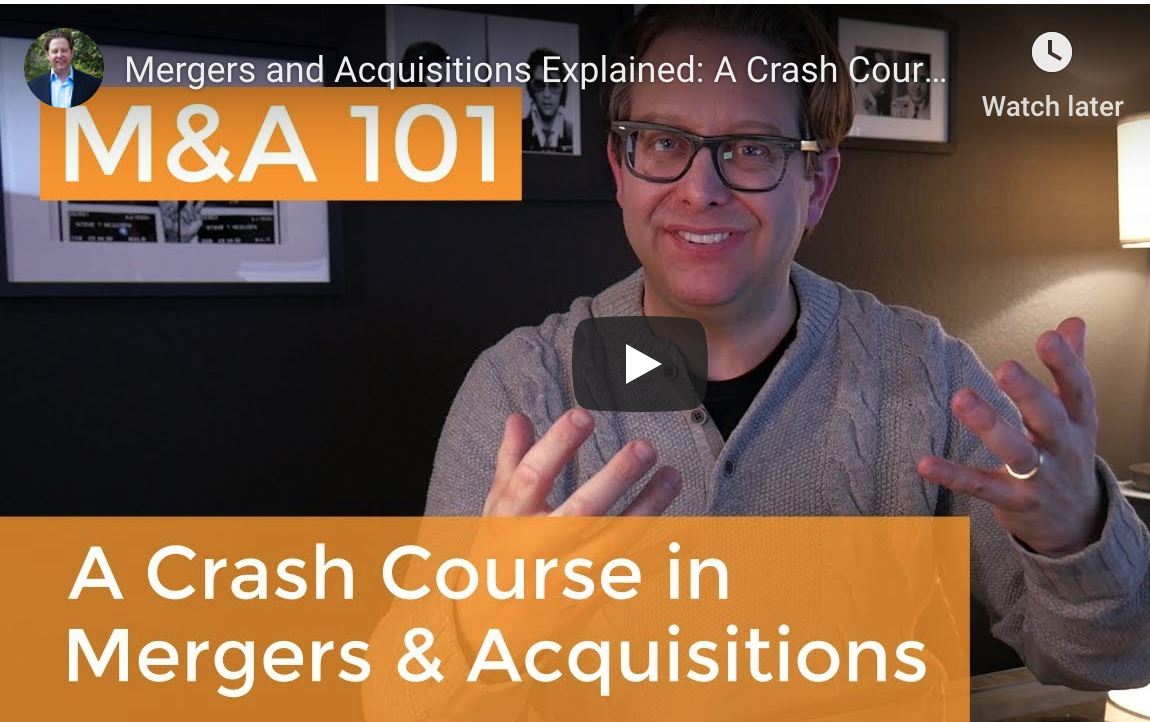Approaching Buyers When Selling Your Business
When selling your business and preparing to approach a potential buyer or merger partner, learn as much as you can about them the process of merger or acquisition and soliciting a potential purchaser or merger partner, try to get to know as much as possible about your potential purchaser or merger partner long before you might want to sell, and certainly before you directly discuss the topic of a merger or acquisition. It is of primary importance to be careful with the amount of information you disclose, because potential purchasers are also often potential competitors.
Navigating Conversations During an M&A Deal
Avoid discussing your motivation for entering into the process of offering your company as a target for merger or acquisition, during these conversations, unless the other company raises the topic. Even then, you usually want to be relatively circumspect. It is better to be bought, not sold. First steps often come in the form of a strategic partnership and/or a minority investment by the other company, but sometimes an interested buyer will skip dipping their toe in the water and try to jump right in.
When it comes time to discuss an acquisition, you want your buyers in a position where they are eager to participate in the process of negotiation. A decent amount of urgency and enthusiasm on the part of the buyer’s management team usually leads to a better deal and higher offers. The slightest whisper of desperation on the part of the target for merger or acquisition immediately lowers its potential valuation. Remember that if your business is worth purchasing, its value will remain consistent if not increase over time, so you should not be in a rush to divest yourself of your profitable venture.
Formal or Informal Approach to Selling
If you have decided the time has come to sell, one can take an informal or formal approach. The informal approach starts with personal conversations with possible champions within the potential partner for merger or acquisition. Like any high-end sales process, you will want to identify the power players who will stand the most to gain from a deal and get them excited about a participating in the process of merger or acquisition. You also want to adapt your sales pitch to the particular interests of your target and the synergies specific to their business.
Although it is true that large companies often have a business development and finance team focused specifically on investments, mergers, and acquisitions, these groups are often working on a large number of potential opportunities. Internal champions can bring you to the front of that list of potential targets for merger or acquisition.
Investment banks and advisory companies with strong practices within your industry sector will tend to have pre-existing relationships with the executive and merger or acquisition teams at major companies, which sometimes give them inside information on the interests and priorities of potential buyers.
Identifying Potential Partners for Merger or Acquisition
Once you and your business have decided that you want to become a target for merger or acquisition, you need to find a potential purchaser or merger partner who can afford the purchase and has a strong need for the assets your company has to offer. Sometimes the potential purchaser or merger partner is a company outside of your sector who anxiously wants to acquire a market share in your industry, but often you will find that the best buyer candidates are your coincidentally your best candidates for a potential business partnership.
Whatever the partnership synergies (for example, if you have a leading product and they have a sales channel, or vice versa), it is probable that you have already thought about a business development relationship with these companies. Naturally, in some cases these businesses will also be potential competitors whose product lines have not yet overlapped with your own.
After You Find a Potential Buyer/Partner
Once you have identified a group of potential purchasers or merger partners, you will need to filter the list by analyzing the business strength and currency (cash/stock/other consideration) of any potential purchaser or merger partner. You will want to determine if any potential purchasers or merger partners have a strong enough cash and equity position to enable them to follow through on the process of merger or acquisition.
If you expect to receive stock in consideration for your company, you will want to judge a potential purchaser or merger partner’s track record of stability and potential for growth. It would not be in the best interest of you or your company to allow yourself to merge with or be acquired by a company that is not capable of not only maintain your current profitability, but also increasing the earning potential of your company.
Comparing the Affiliated Merger or Acquisition Company
You will also want to consider the comparative cultures of the two companies considering merger or acquisition. Although two different companies are operating in the same or similar industry or business, infrastructural styles can differ greatly. It behooves you to consider whether the existing company can truly continue to function successfully under a different organizational structure, or in the event of a merger, if the two organizations can truly work together cohesively as one company?
Incongruous managerial styles and infrastructural incongruities creating corporate cultural clashes and political factions have destroyed the potential success of many acquisitions. Don’t allow yourself to overlook these potential pitfalls while blinded by the potential profitability of the future possibility of merger or acquisition. It is better to continue to reap the rewards of one successful business than to risk the current and future value of your business with a premature merger or acquisition.
Direct Steps or Intermediary
It is up to your company and the team that you select to prepare for the possibility of merger or acquisition as to whether your company takes these steps directly, or through an intermediary such as an investment bank or advisory firm. There are many benefits to working with an investment bank or advisory firm.
An investment bank or advisory firm can recommend the optimal process of preparing for a possible merger or acquisition, and since a competitive environment is usually required to get a decent price, this advice can be critical. An investment bank or advisory firm can also serve as a buffer during the process of soliciting potential partners for merger or acquisition and the pursuant negotiation process, so that neither side gets too over-heated and a perfectly sensible and potentially profitable deal implodes because of the emotion of a moment. An investment bank or advisory firm will help to provide a more formal approach. They will work with you to identify possible buyers and to create a selling memorandum or management presentation, which can be similar to the type of business plan/pitch you would use when talking to venture capitalists.
They will leverage their relationships with management at key buyers, and approach their contacts over the phone and possibly with a short “teaser”, keeping the name of your company confidential until a non-disclosure agreement (NDA) is signed. Once an NDA is signed and the interest level confirmed, the selling memorandum is sent. Although a selling memorandum is not always necessary, just as a full business plan is not always needed by venture capitalists. Sometimes conversations, meetings, presentations, and due diligence documentation are all that is required. In some situations, a selling memorandum can even be counter-productive, because it presents the appearance that the company is “on the market”.
Keeping the Deal in Tact
Regardless of approach, remember to sign a mutually legally-binding non-disclosure agreement before disclosing additional detailed information about your company to potential prospects for merger or acquisition. NDAs are not failsafe, but they offer some legal protection and highlight the need for due discretion during the negotiation process. You must also carefully decide, even with a signed NDA, how much information you want to disclose and at what stage of the process. An interested buyer will usually want to know more than you want to share, and you will have to use your discretion at every stage to determine what level of disclosure will intensify the buyer’s interest without harming your business should the deal fall through.
If you are going through a merger, make sure that you keep these tips in consideration when approaching all potential buyers. If you have questions for an M&A lawyer, reach out to me at 512.888.9860. I have offices in Austin and Houston, although I represent buyers and sellers all over Texas.

